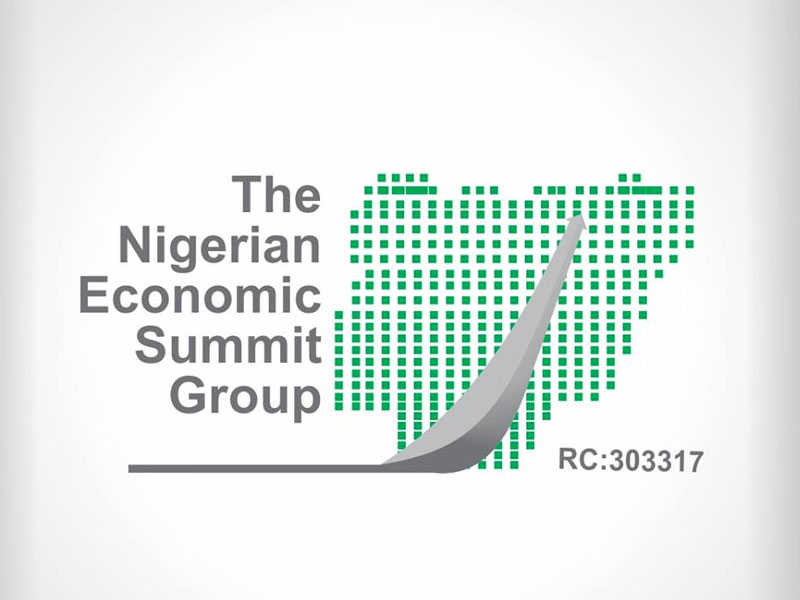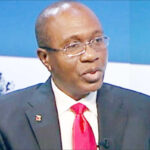Organisers of the Nigerian Economic Summit Group (NESG), said the summit has helped to steer economic growth and national development objectives since the 90s.
This piece dissects the historical analogy of the summit’s impact on the Nigerian project so far. In the middle of the negative and the unproductive climate that engulfed the 1990s, a group of concerned business professionals started to form within the private sector with an agenda to reform Nigeria and set it on the part of democratisation, deregulation and privatisation.
They questioned the economic order and became the first Nigerian economic mutineers. Amongst this group were Pascal Dozie, first Chairman of the NESG), Chief Phillip Asiodu (NESG Board of Patrons), Mohammed Hayatudeen (former NESG Chairman), Usman Samsudeen (Board of Patrons), Ahmed Joda (NESG Board of Patrons), Joseph Sanusi (former Governor of the Central Bank of Nigeria, Dick Kramer (former Vice-Chairman of the NESG), Bunmi Oni, Dotun Sulaiman, Faisal Al-Kalli, Odinka Kalu, Chris Eze, Brain Andersen, Felix Ohiwerei and Ernest Shonekan.
The first thing they did was to create a platform for dialogue, and after a series of meetings, they reached a consensus and determination to confront the established economic order under the military.
The appointment of Chief Ernest Shonekan as Chairman of the Transitional Council and Head of Government by General Ibrahim Badamasi Babangida (IBB) in 1993, brought a convergence of policy, political and solution streams of thought. This seeming convergence of time and chance gave birth to the brainchild of the Concern Business Professionals- a National Summit dedicated to the formulation of an Economic Action Agenda for Nigeria.
Dick Kramer, the First Vice-Chairman of the NESG noted, “Time was ripe with him (Ernest Shonekan) going to head the transition government to really develop a strong public-private partnership…, because Bill Clinton was elected President of the United States in November 1992, and he had a 2 or 3-day Economic Summit, to kind of build the credibility and game plan for his administration. Chief Shonekan saw that, and said that’s something we can do as part of the Transition Council.” With just a few months to plan it, Chief Ernest Shonkean convened the first Nigerian Economic Summit.
Therefore, in 1993, these private sector leaders conceived the Nigerian Economic Summit (NES) and organised the first-ever summit (NES#1).
They sustained it as an annual platform for bringing together private sector leaders and senior public-sector officials, civil society leaders and academia to discuss and dialogue on the future of the Nigerian economy.
The NESG and the NES Platforms have been strategic in the transformation of the Nigerian Economy from a Closed, Opaque and Non-Inclusive one to an Open, Transition Economy with the potential of becoming one of the top 20 economies in the World.
Rather unexpectedly, the Nigerian Economic Summit was also well-received by the General Abacha regime. In 1995, (NES#2) identified measures needed for the successful implementation of the 1995 budget and identified a framework for developing a long-term vision for Nigeria as a way of creating the future. This long term framework would form the terms of reference for the Federal Committee and later Council on Nigeria’s Vision 2010.
Best described in the words of NESG Founding Vice-Chairman, Dick Kramer, “We substituted High-Tables for Work-Tables… we knew that it would take sitting in small groups with the government officials to make the policy changes we needed for Nigerian to happen.”
The key areas of the NESG impact in the 90s are the establishment of the National Economic Scorecard as the foundation for setting the agenda for the Economic Summits; the birth of the Vision 2010, which became the basis for the formulating all future National Development Plans and Economic Agendas;
“Design of the reform agenda and the role of the Public and Private Sector for education, stabilisation, privatisation, deregulation, infrastructurisation and democratisation; and revocation of the decree that paved the way for Central Bank of Nigeria’s autonomy was recommended in 1998.
The Nigerian Economic Summit as an idea had transcended four heads of state and formed a vital element of the expanding Nigeria civic space. It gained a significant amount of trust capital and equity as being a “credible and vital platform for driving crucial national economic reform discourse” and emerging as a “neutral national partner” that transcended political/business interests in the reform of the Nigerian economy for the national public interest.
The administration of President Muhammadu Buhari (PMB) in his first term was framed based on three national priority areas: National security, anti-corruption and economic growth.
In his first year in office, Nigeria suffered a decline in commodity prices, which triggered an economic recession.
With reference to pre-2015 fiscal indicators, the 2015 Summit (NES#21) provided key pointers to the risks of the recession of 2016-2017, key recommendations for Enabling Business Environment Reforms. The NESG noted however, that “Nigeria’s remarkable growth performance in the last decade has not translated into shared prosperity for average Nigerians.”
The summits reiterate previous recommendations and proffer new recommendations to drive Nigeria’s economic growth, and these recommendations drive the activities of the policy commissions and other NESG engagement platforms, all anchored on evidence-based research.
- Looking forward to 26th Summit
The 26th Nigerian Economic Summit (NES #26) which will hold from October 26, will convene national and global policymakers, business leaders, development partners and scholars to lead and participate in sessions that will focus on building strategic partnerships and cooperation between governments, businesses and civil society for resilience.
It is part of a ‘Big Conversation for Action’ that combines in-person and virtual dialogues to reflect on the state of the economy, rethink our economic fundamentals, and deliberate on the impact of the global pandemic.
The summit will highlight the role of Nigeria’s sub-nationals as frontiers for national development and explore emerging trends in the horizon that will enable Nigeria to capitalise on new opportunities.
It aims to agree on a compact with clear and decisive actions that commit stakeholders to collaborate and build resilience for Nigeria’s households, businesses, and the economy by ensuring that Nigeria meets the SDGs by 2030.

 Join Daily Trust WhatsApp Community For Quick Access To News and Happenings Around You.
Join Daily Trust WhatsApp Community For Quick Access To News and Happenings Around You.

